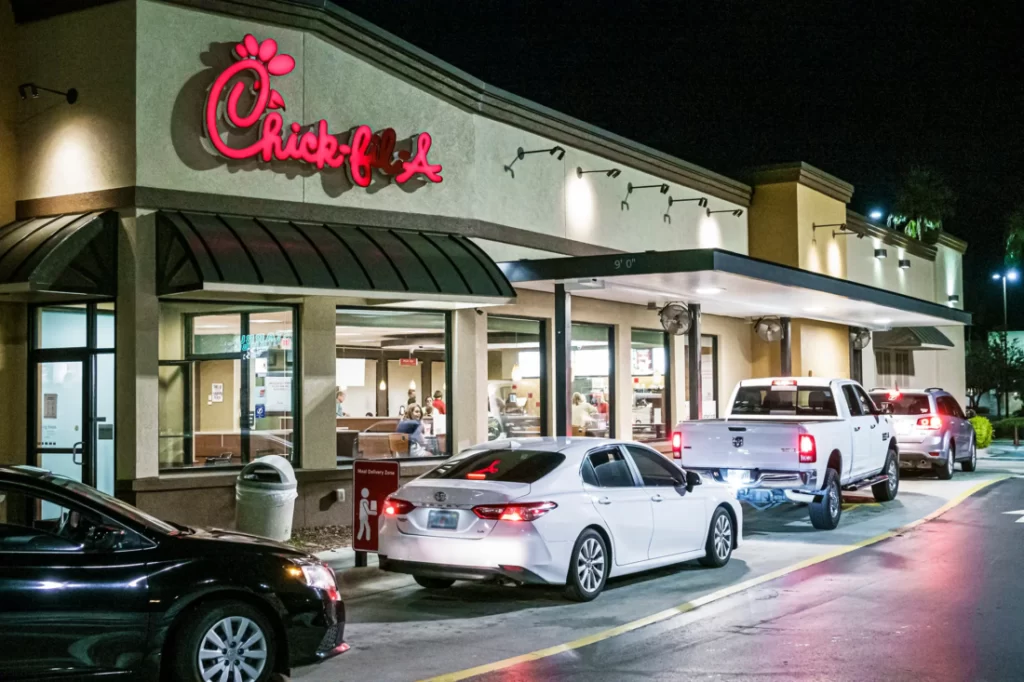Chick-fil-A is getting some backlash for going woke. It has to do with the existence of a “diversity” department in the corporate structure. That has put the fast-food operation in the sight of some folks on the right. This is in keeping with the backlash against Anheuser Bush, for putting transgender influencers on its Bud Lite cans, Target, for putting up a major display of LGBTQ+ promotional items, and Disney for taking a position on legislation banning sexual content directed at young children in schools. (It was never a “Don’t Say Gay” bill as the left so eagerly misrepresented.)
In the Bud, Target, and Disney cases, there was a clear promotion of the most extreme alternative lifestyles – and in the case of Target, it included children’s “message” clothing. That is a far different situation than Chick-fil-A, which has had an internal diversity operation for several years – most dealing with employment practices.
What makes the Chick-fil-A case significantly different is that the company has historically been the target of leftwing backlash for the owners’ conservative Christian beliefs. The only noticeable impact that it has had on the food chain operation is that the outlets are not open on Sundays.
The owners have been criticized for their pro-life position on abortion. As conservative Christians, the owners have followed the position of abhorring the sin but loving the sinner. More importantly, those beliefs have not impacted the serving of great chicken sandwiches to everyone – and to hire regardless of race, creed, or lifestyle.
Several years ago, Chick-fil-A was on the top of the news for their owners’ conservative values – with those on the left calling for a boycott. It did not work – just as most left–wing boycotts do not. Chick-fil-A soared to one of the most successful fast-food franchises in the country.
In fact, the one near me has a line of cars in the drive-thru at almost any hour of the day. One of my liberal friends – with whom I dine frequently – refuses to eat at Chick-fil-A as her personal protest.
It was interesting to see how knee-jerk reactive the left can be. MSNBC’s “Morning Joe” line up – with some of the leading voices in leftwing propaganda — was suddenly in praise of Chick-fil-A. Joe Scarborough, Mika Brzezinski and Willie Geist – three hardcore lefties – were all in praise of Chick-fil-A as one of their favorite eateries. They even praised their Christian values. (Brzezinski must have forgotten about her pro-abortion stand in that moment).
It should be noted that the backlash against Chick-fil-A on the right is very limited compared to the attack on Anheuser Bush, Target and Disney. A lot of conservatives are not joining the anti-Chick-fil-A backlash. As the situation becomes clearer, the protest is likely to evaporate.
I doubt that their business will be hurt – unlike AB (with a $19 billion drop value) and Target (with a $16 billion drop). The consumer jury is still out, but the Bud Lite brand may be dead. Numbers vary in the Disney case, but gate revenues and product sales are noticeably down – and the Disney animated movie released at the height of the controversy, “Strange World,” bombed like no previous offering by the number one producer of Childrens’ content.
History seems to suggest that leftwing boycotts generally fail – and may even make the target more popular. Chick-fil-A is but one example. Many conservative voices speak out against all corporate boycotts, such as Sean Hannity. But boycotts against corporate wokeness seem to have an effect. Perhaps because conservative backlashes tend to be more organic, Conservative folks may be more willing to give up on companies that push against their values. It is more of an instinct than a response to any call-to-arms.
One of my major services as a public affairs consultant has been to advise businesses to stay away from intermingling their marketing strategies with partisan or controversial issues. It limits their growth potential and is a fiduciary disservice to stakeholders. Anheuser Bush, Target, and Disney have learned this the hard way. While proclaiming their righteousness, all three are cutting back on their promotion of controversial causes.
Personally, I will avoid the Anheuser-Bush family of beers (I do not imbibe much anyway) – and I have never liked shopping at Target. I am too old for most Disney movies – and as far as Disney World – been there and done that. As for Chick-fil-A, this commentary has made me hungry. I may have to endure the line at my local outlet in the next day or two.
So, there ‘tis.
